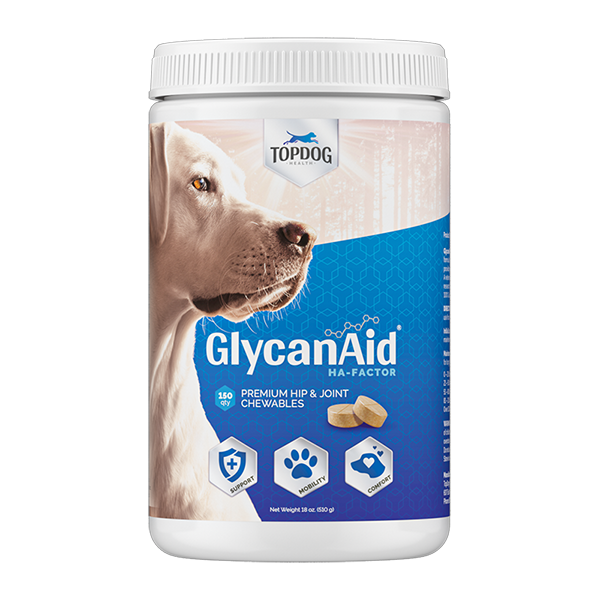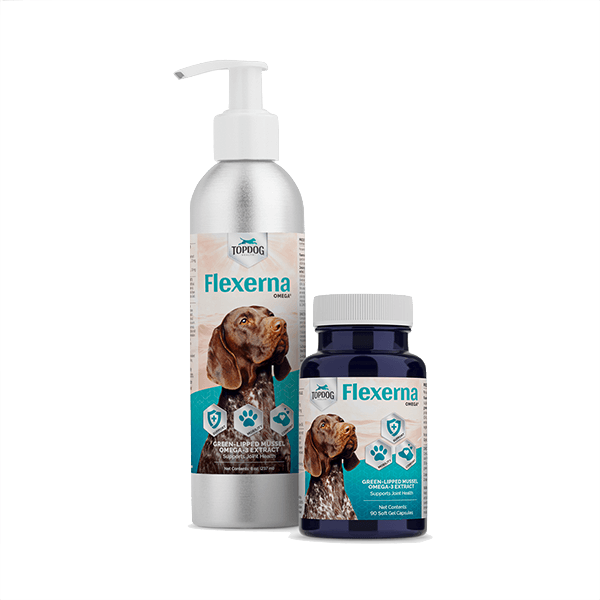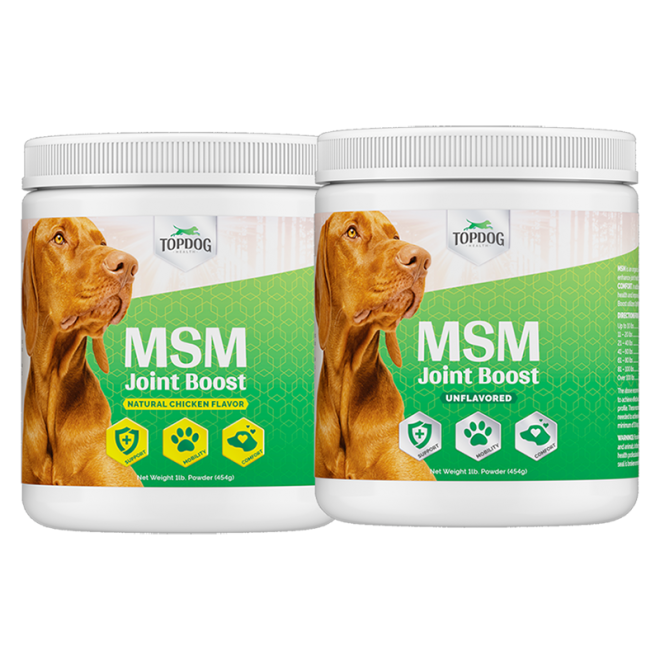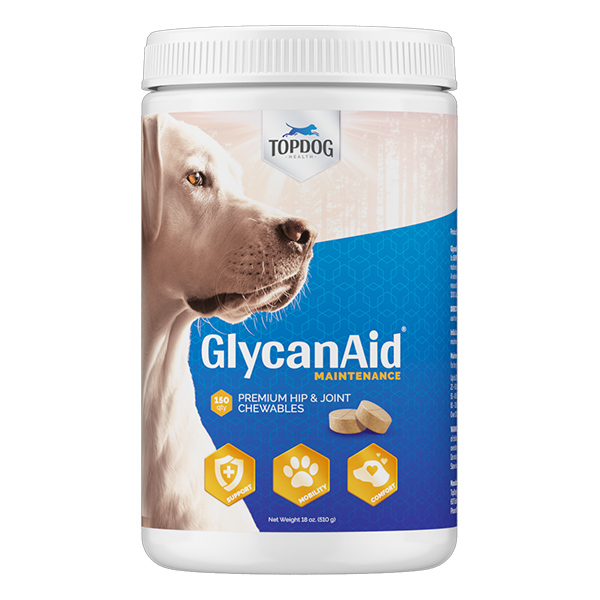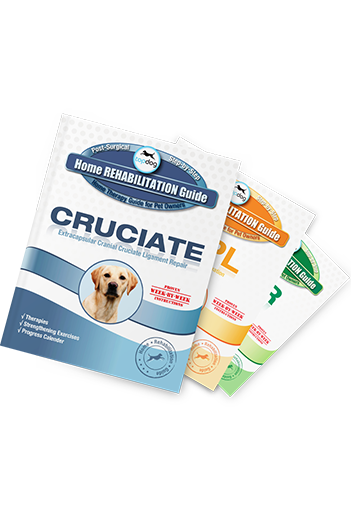Joint Supplements After Surgery
When you and your pup are prepping for an orthopedic surgery, you want to know that your canine companion is in good hands-steady and knowledgeable hands to say the least! But did you know that what happens after the surgery is every bit as important as what goes on in that operating room? It’s true, the recovery period can make or break an orthopedic surgery, no matter how neat and pretty your veterinarian turned it out.
So, how do you make the most out of helping your dog to recover in the best way possible? Strictly follow your veterinarian’s rest and exercise guidelines and talk to them about joint supplements.
Factors that Influence Healing and Long-term Recovery
Wound healing is a complex process, as you can imagine. Even though just about everyone can do it, there are some factors that influence wound healing and long-term recovery for the better, and some that affect it for the worse.
To begin with, an injury or surgical site needs to have a good blood supply. That’s because blood carries all of the healing factors, including oxygen, to the place they are needed. You also need a clean, healthy place to start, something that should come easy following a sterile procedure. To keep that place clean and healthy, you’ll also need an immune system that’s up to snuff.
Factors that are going to go against healing and that can increase the recovery time include: underlying health conditions, such as diabetes, kidney or heart disease, or Cushing’s, to name a few. Any of these can interfere with blood flow or the immune system, increasing the time it takes for a dog to knit themselves back together. Also a factor is being overweight. Not only does excess weight equal excess pressure on joints, fatty tissue can actually increase inflammation, something that healing tissues don’t like. Finally, you’ll want to keep that surgical site from getting infected by following the vet’s orders of not bathing, not letting your pup lick the incision, and giving the prescribed antibiotics.
How Can Supplements Help With Initial Healing After Surgery?
Besides keeping your dog’s surgical site clean and not letting them run wild, you can also promote healing by giving supplements. While joint supplements aren’t quite a miracle pill, they do have a lot to offer a dog’s joint, especially following something as invasive as an injury or surgery. Let’s break it down by the major ingredients:
- Glucosamine hydrochloride: One of the most popular ingredients in joint supplements for dogs is glucosamine and here’s why: Glucosamine is naturally found in joint fluid, bone marrow, and bones of animals. It is a player in stimulating cartilage cells and actually is part of the cartilage matrix. Glucosamine also helps to thicken joint fluid, making it better at lubricating the joint and absorbing shock.
- Chondroitin sulfate: Chondroitin is the peas to glucosamine’s carrots. While glucosamine works to increase cartilage production, chondroitin works to decrease its breakdown of it. Along with that, chondroitin helps cartilage to retain water so that it stays squishy and pliable. It may also inhibit inflammation.
- Omega fatty acids: When talking about omega fatty acids, there are two important ones to remember, omega-3s and omega-6s. These fatty acids need to come from food and work to promote not only joint health but overall health. The major benefit of omega fatty acids is decreasing inflammation by blocking enzymes in the inflammatory pathway. While a little inflammation isn’t necessarily bad, too much can decrease your pup’s ability to heal, along with causing pain and discomfort.
- MSM: Methylsulfonylmethane, or MSM, is a compound containing sulfur. Sulfur has many beneficial actions in the joints and around the body. It can help to block pain pathways and reduce inflammation, making a dog more comfortable. Sulfur also is an antioxidant that helps to clear up oxidative damage naturally.
- Hyaluronic acid: Another naturally occurring compound in the joints is hyaluronic acid. This is what gives joint fluid and connective tissue its jelly-like texture that’s necessary for absorbing all the shock and bounce each time your dog steps down from the couch or runs off after their ball. Hyaluronic acids break down and production decreases as a pup ages, so supplementing it as a dog gets older is almost a must.
- Vitamin E and C: Vitamin E and C are both great antioxidants that help decrease oxidative damage to reduce the effects of aging and just help clean up normal wear and tear within a joint and throughout the body.
Now, you can see how any one of these ingredients is going to give your dog’s freshly worked-on joint good, natural ingredients that the joint tissue and fluid crave. Supplying them with these necessary nutrients in the quantities that they need will help ensure that the body has everything it needs to rebuild and repair. Not only do these ingredients feed the joints, but they will also crossover to help bones and muscles since it they all work together in giving your dog their much-needed mobility.
How Do Joint Supplements Help for Dogs Help in the Long-Term?
If your plan is to give joint supplements only immediately following your dog’s orthopedic surgery, it’s time to come up with a new plan, and a long-term one at that. While joint supplements can help your pup breeze through the surgery recovery period, they are equally important for your dog’s long-term arthritic outlook.
You see, arthritis is an inflammatory process that leads to the breakdown of the joint cartilage and other joint tissues over time. What this means for your pup is joint stiffness, pain, and even swelling that make your pup choose to stay in bed over a morning walk.
Giving joint supplements can help to decrease the inflammation that is the root of the issue. They also provide those great nutrients that help to rebuild and boost joint tissues, even if they’ve already experienced some wear and tear.
You shouldn’t be surprised that anything that affects how that joint is supposed to behave is going to cause some problems. This includes injuries or joint abnormalities. Most of the time, these problems set that joint up for arthritis down the road. Proactively giving joint supplements can help right a dog’s joint ship to decrease the severity of arthritis or prolong its development of it.
When Should a Dog Start Taking Joint Supplements?
The quick answer is now! But it’s also never too late. Puppies can even take joint supplements. The general rule for some breeds is to start joint supplements as soon as a pup stops growing. These are breeds that are especially prone to hip, elbow, or knee abnormalities or injuries. Breeds on that list include:
- Golden Retrievers
- Labrador Retrievers
- Great Danes
- Bulldogs
- German Shepherds
- Basset Hounds
- Pugs
You may have noticed that this list leans heavily toward the large and giant breeds of dogs. That’s simply because these dogs often grow at a tremendous rate, going from puppy to pony in a matter of a short time. If these puppies grow too quickly, they run the risk of bones and connective tissues not reaching their destination at the same time, leading to joint abnormalities.
For young dogs, GlycanAid Maintenance is right up their alley. It will give them the powerful products of glucosamine, chondroitin, vitamin C, and even some MSM to help joints stay youthful and healthy into a dog’s adult years. For a little added boost, talk to your vet about giving your dog Flexerna Essentials for the omega fatty acids as well.
If you’ve already missed this time frame, don’t worry. Joint supplements can still be put to good use in adult and even senior pups. They can even help dogs already undergoing the grueling discomfort of arthritis. For these dogs, though, you’ll want to look into something a little more powerful. GlycanAid HA has all of the beneficial ingredients as the maintenance version GlycanAid with the added power of hyaluronic acid to help lubricate those grating joints. MSM Joint Boost will up their MSM intake for a little extra pain management, and Flexerna Omega will take the anti-inflammatory capabilities to a new level.
Other Approaches to Pre Existing Arthritis
For a different approach to pre-existing arthritis, talk to your vet about Adequan injections. This medication is made to prevent and help reverse the effects of arthritis and is safe to use in conjunction with most other joint supplements. Speak to your veterinarian about this possibility if your dog is experiencing, or likely to experience, debilitating arthritis.
You may also wish to add in some separate vitamin E or vitamin C for their antioxidant actions or some eggshell membrane to help build and maintain muscle. After all, the stronger a dog’s muscles are, the easier they are going to recover from orthopedic surgery.
If your pup has had an orthopedic injury and is facing surgery, it’s still not too late. Talk to your vet about starting joint supplements prior to surgery. Most supplements need time to really take effect. They require a loading dose, usually twice the maintenance dose, for a couple of weeks in order to get the nutrients built up in your dog’s system. However, most manufacturers and dog owners alike will tell you it takes 4-6 weeks to really see the full effect. This means that if you want those joint supplements working at full steam during surgery recovery, they’ll need to start taking them at least a month in advance.
Now, some vets may prefer you wait to start joint supplements until after surgery. That is because there is some concern about bleeding and wound healing issues with some supplemental ingredients in humans with unknown effects in our canine companions. Some vets may recommend stopping joint supplements or not starting them until after surgery just in case. Your vet is going to know what is best for your pup, so be sure to tell them all of the medications that your dog is taking.
Post Surgery Joint Supplement FAQ’s
Anytime there is trauma to a joint, including surgery, supplements that help rebuild cartilage and thicken joint fluid can really help. Those include glucosamine, chondroitin, MSM, omega fatty acids, hyaluronic acid, and vitamins E and C.
Dogs that undergo an orthopedic surgery are going to go home on antibiotics and anti-inflammatories, at the very least. Some may need additional pain medications as well.
Most vets will recommend that your dog start joint supplements after an orthopedic surgery. That is because any damage to a joint increases the chance that they will develop arthritis in that joint. Joint supplements can help prolong that from happening and decrease the severity when it does.
Talk to your vet before stopping supplements for surgery. Some may allow you to continue giving them while others will have you stop for two weeks before surgery and resume once the incision is healed. This is why it’s important to always keep your vet in the loop on what medications/supplements your dog is on.
Vitamins C and E can help wounds heal faster due to their antioxidative effects. They also help boost the immune system to fight off infection, something very important in wound healing.
Most joint supplements work hand-in-hand with prescriptions like anti-inflammatories and pain meds. The idea of giving joint supplements, though, is to decrease the need for these medications. However, since joint supplements take 4-6 weeks to really kick in, anti-inflammatories are a must to get a dog feeling more comfortable right now. Always speak to your veterinarian before starting a joint supplement to ensure that it is safe to give with their other medications.
Yes, for most healthy dogs, joint supplements are safe for long-term use. In fact, they work better if you do so. Once you start bathing those joints in all these healthy and beneficial nutrients, you don’t want to stop. Of course, if your pup has a reaction of any kind to a joint supplement, discontinue and speak to your veterinarian.
Visit Our Shop!
GlycanAid® HA
$42.95 – $163.95Our max-strength daily joint health supplement was made for dogs over 7 yrs of age or dogs that have had orthopedic surgery or existing compromised joint health. Veterinarian-formulated with medical-grade ingredients that target all aspects of joint health. A full 25mg of hyaluronic acid per dose plus all the essential building blocks (glucosamine & chondroitin ) and effective anti-inflammatories (MSM, Cetyl Myristoleate & Vitamin C) result in happier, healthier more comfortable joints to maintain an active lifestyle.
Flexerna Omega®
$41.95Flexerna Omega® is a daily omega-3 joint supplement designed for dogs of all ages to naturally support their joints and improve everyday comfort. Veterinarian-developed, utilizing pure cold-processed green-lipped mussel extract (25 mg per pump or 50 mg per capsule). Every dose includes up to 90+ fatty acids, including EPA, DHA & ETA, shown to have powerful natural anti-inflammatory benefits resulting in a more noticeable comfortable, happier & active dog.
Flexerna Essentials Green-Lipped Mussel & MSM
$29.95Veterinarian-formulated 100% pure green-lipped mussel (GLM) enhanced with Opti-MSM®. This clinically effective, daily joint powder can be used alone or as a BOOSTER to any existing joint supplement. An amazing all-natural source of chondroitin, vitamins, mineral and proteins for healthy cartilage and the anti-inflammatory support that maintains daily comfort. With only actives, no fillers or binders this is a great solution for dogs that are on a whole food or RAW nutrition diet.
MSM Joint Boost
$26.95 – $29.95MSM Joint Boost is a single ingredient daily joint health solution for dogs of all ages and breeds. Can be used alone or as an added booster to your dogs existing joint supplements. We use human-grade, Opti-MSM®, that targets the root cause of joint pain and inflammation. Our veterinarian-formulated, research-backed, naturally-occurring compound will have your dog feeling better and playing longer for years to come.
Start improving your dog’s comfort, support and mobility.
GlycanAid® HA
$42.95 – $163.95Our max-strength daily joint health supplement was made for dogs over 7 yrs of age or dogs that have had orthopedic surgery or existing compromised joint health. Veterinarian-formulated with medical-grade ingredients that target all aspects of joint health. A full 25mg of hyaluronic acid per dose plus all the essential building blocks (glucosamine & chondroitin ) and effective anti-inflammatories (MSM, Cetyl Myristoleate & Vitamin C) result in happier, healthier more comfortable joints to maintain an active lifestyle.
GlycanAid® Maintenance
$34.95 – $71.95Our daily joint health supplement for young to middle age dogs ( < 7 yrs of age) in need of consistent joint nutrition. Veterinarian-formulated and balanced with only medical-grade essential building blocks (glucosamine & chondroitin) and effective anti-inflammatories (MSM, Cetyl Myristoleate & Vitamin C) typically not found in their daily diet. Improved joint nutrition results in a visibily happier, more comfortable, energetic dog for years and years to come.
Flexerna Omega®
$41.95Flexerna Omega® is a daily omega-3 joint supplement designed for dogs of all ages to naturally support their joints and improve everyday comfort. Veterinarian-developed, utilizing pure cold-processed green-lipped mussel extract (25 mg per pump or 50 mg per capsule). Every dose includes up to 90+ fatty acids, including EPA, DHA & ETA, shown to have powerful natural anti-inflammatory benefits resulting in a more noticeable comfortable, happier & active dog.
Flexerna Essentials Green-Lipped Mussel & MSM
$29.95Veterinarian-formulated 100% pure green-lipped mussel (GLM) enhanced with Opti-MSM®. This clinically effective, daily joint powder can be used alone or as a BOOSTER to any existing joint supplement. An amazing all-natural source of chondroitin, vitamins, mineral and proteins for healthy cartilage and the anti-inflammatory support that maintains daily comfort. With only actives, no fillers or binders this is a great solution for dogs that are on a whole food or RAW nutrition diet.
MSM Joint Boost
$26.95 – $29.95MSM Joint Boost is a single ingredient daily joint health solution for dogs of all ages and breeds. Can be used alone or as an added booster to your dogs existing joint supplements. We use human-grade, Opti-MSM®, that targets the root cause of joint pain and inflammation. Our veterinarian-formulated, research-backed, naturally-occurring compound will have your dog feeling better and playing longer for years to come.
Rehab Guides
TopDog’s Home Rehabilitation Guides offer informative step-by-step instructions to help with your dog’s recovery after surgery.
Dogs Don’t Cry Book
$9.95Dogs Don’t Cry: Dispelling the major misconceptions about joint pain in dogs, teaching you what to look for and how to improve your dog’s life.



